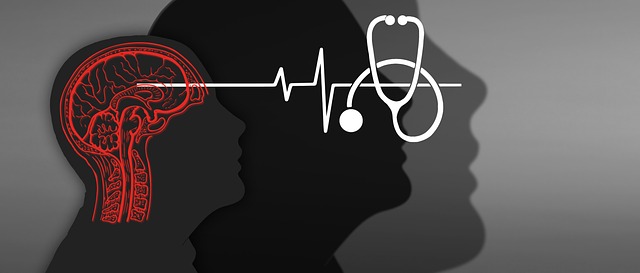In today's fast-paced world, crisis hotline support services play a vital role in addressing immediate mental health needs, especially for individuals grappling with Littleton spiritual-religious issues that traditional therapy might overlook. These hotlines provide confidential spaces for expression, offering guidance and conflict resolution techniques to build inner strength and emotional resilience. By combining faith-based practices with evidence-based therapy, Littleton Spiritual-Religious Issues Therapy holistically addresses mental health challenges, destigmatizing emotional distress and empowering individuals through connection, coping mechanisms, and effective crisis management strategies. Accessing these hotlines is a crucial step towards overcoming personal struggles, offering immediate assistance, empathy, tailored support, and enhanced emotional regulation.
In today’s fast-paced world, mental health crises can strike anyone, anywhere. Recognizing the growing need for immediate support, this article explores crisis hotline services as vital resources for those in distress. We delve into the significance of these hotlines, highlighting the unique contribution of Littleton Spiritual-Religious Issues Therapy in providing compassionate, evidence-based care. Additionally, we offer practical guidance on accessing and navigating these life-saving services effectively.
- Understanding the Need for Crisis Hotline Services
- The Role of Spiritual-Religious Therapy in Crisis Support
- Accessing and Utilizing Crisis Hotlines Effectively
Understanding the Need for Crisis Hotline Services

In today’s fast-paced world, mental health crises can strike anyone, anywhere, at any time—whether it’s due to overwhelming stress, feelings of despair, or spiritual-religious issues that leave individuals searching for direction and solace. This is where crisis hotline support services play a pivotal role in offering immediate assistance and guidance. Understanding the need for these hotlines involves recognizing the diverse nature of mental health challenges, including those rooted in Littleton spiritual-religious issues. Therapy and counseling are not always accessible or appealing to everyone, especially during acute crises; thus, hotlines provide a confidential, non-judgmental space where individuals can share their struggles and receive support.
Crisis hotline services cater to the growing need for mental health awareness and inner strength development. They equip callers with essential conflict resolution techniques, fostering better coping mechanisms and emotional resilience. By offering a listening ear and practical advice, these hotlines not only provide immediate relief but also encourage individuals to seek long-term solutions for their mental well-being. In light of the above, crisis hotline support services emerge as game-changers in the realm of mental health care, addressing issues that may otherwise remain unseen or unheard.
The Role of Spiritual-Religious Therapy in Crisis Support

In times of crisis, turning to spiritual or religious beliefs can be a powerful source of comfort and healing. Littleton Spiritual-Religious Issues Therapy offers a unique approach to mental health support by integrating faith-based practices with evidence-based therapeutic techniques. This holistic method recognizes the profound impact that one’s spiritual life can have on their overall well-being, especially during challenging periods. By addressing both the mind and spirit, therapists facilitate a deeper sense of connection, resilience, and inner strength development, which are crucial in managing crises effectively.
The role of spirituality in crisis support is multifaceted. It provides individuals with a framework to make sense of their experiences, fostering emotional intelligence and coping mechanisms. Public awareness campaigns development around spiritual resources can help destigmatize mental health struggles and encourage people to seek support when needed. Many find solace in shared beliefs and rituals, which offer comfort and a sense of community, ultimately contributing to faster recovery and improved crisis management strategies.
Accessing and Utilizing Crisis Hotlines Effectively

Accessing crisis hotline support services can be a critical step towards overcoming mental health challenges, offering immediate assistance and a safe space to express oneself. Individuals facing emotional distress, whether due to Littleton spiritual-religious issues or other personal struggles, can benefit from the professional guidance and empathy provided by these hotlines. Effective communication is key; clear and honest expression of one’s feelings and thoughts allows hotline counselors to offer tailored support.
Utilizing crisis hotlines involves adopting strategies for building empathy and enhancing emotional regulation. Counselors on these lines are trained to listen actively, validating the caller’s experiences and emotions. This non-judgmental approach fosters trust, enabling individuals to share intimate details of their struggles. By employing effective communication strategies, hotline users can navigate complex issues, find solutions, and gain valuable insights into managing their mental health more effectively.
In addressing mental health crises, crisis hotline support services play a vital role in offering immediate assistance and guidance. The integration of spiritual-religious therapy within these hotlines, such as Littleton Spiritual-Religious Issues Therapy, provides a unique and effective approach to supporting individuals across diverse belief systems. By combining compassionate listening with evidence-based practices, these services ensure that people receive holistic care tailored to their specific needs. Effective access and utilization of crisis hotline resources can foster recovery, resilience, and hope for those facing mental health challenges.










